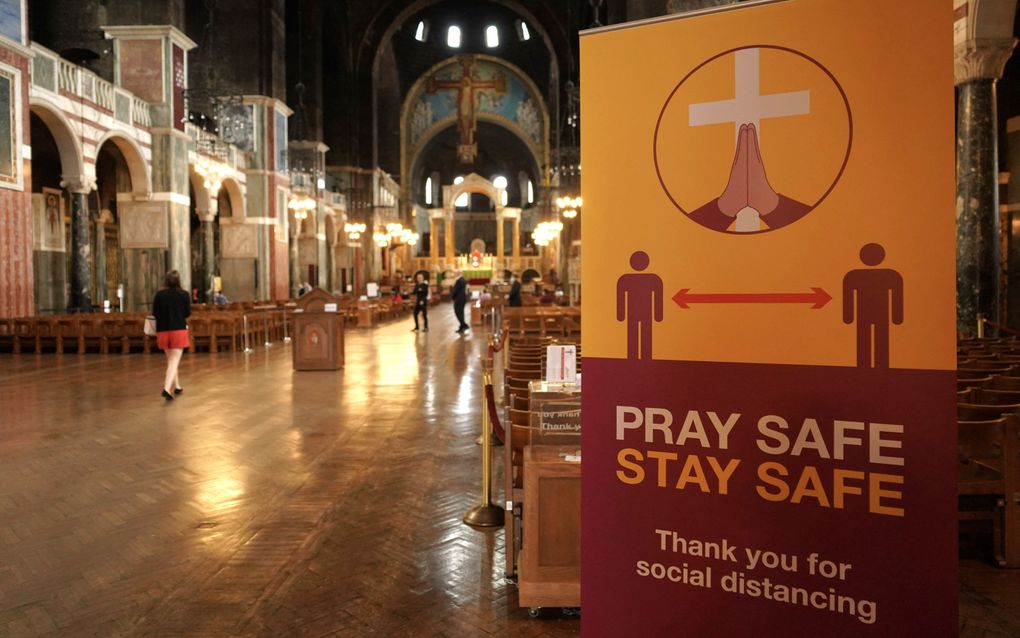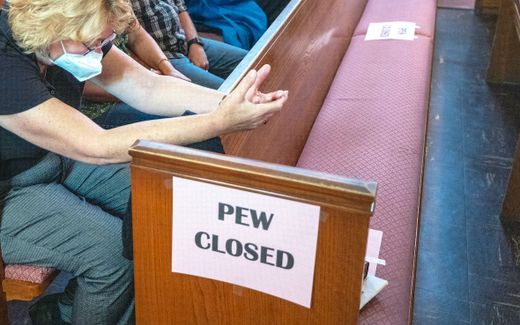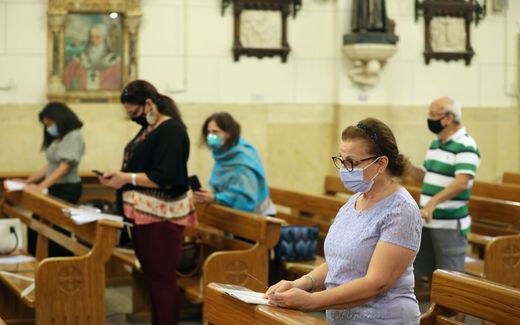European court does not condemn pandemic worship ban

Westminster Cathedral in Londen, UK, during the pandemic. Photo AFP, William Edwards
Central Europe
Is public worship a privilege or a protected right? The European Court of Human Rights (ECtHR) has rejected a request to make it illegal for countries to restrict religious gatherings, as during the COVID pandemic.
Stay up to date with Christian news in Europe? Sign up for CNE's newsletter.
This was decided on an appeal from Dr. Ján Figel from Slovakia. The court in Strasbourg rejected Figel’s request on formal grounds: he could not be considered personally as a “victim” of the restriction. The ECtHR published this decision on Thursday.
Since the decision was already a response to an appeal, it cannot be appealed again.
Figel is a former EU Commissioner and Special Envoy for Freedom of Religion or Belief. He already started this case in 2021 and was rejected. In his appeal against that decision, he argued that the government overstepped its authority when it banned collective worship. He had submitted evidence in 2023 describing how the restrictions harmed him, but the court found this unconvincing.
ADF International and Slovak lawyer Martin Timcsák supported the case, which sought to strengthen legal protections for religious practice in times of crisis.

“I am deeply saddened by the Court’s decision not to address whether these bans violated human rights,” said Figel on Thursday in a press release from ADF International. “The EU cannot promote freedom abroad while neglecting it at home. Worship must not become a right that can simply be suspended.”
The ECtHR is part of the Council of Europe, an international organisation with 46 member states. The court is based on the European Convention on Human Rights, the organisation’s foundation.
Figel said that his right to religious freedom and worship had been violated (article 9 of the convention). However, the court said that he had not proven that he was personally a victim of a violation by the Slovak state (article 34) and, therefore, rejected his complaint. Figel is a practising Roman Catholic who attends church at least three times a week.
Total ban
In 2021, Slovakia introduced a total ban on religious services as part of its COVID-19 rules. The ECtHR did not decide whether such measures were legally justified. This means the issue remains open: are governments allowed to suspend communal worship during emergencies?

According to the press release, ADF’s senior counsel, Dr. Adina Portaru, calls this “a disappointing outcome for religious freedom across Europe”. “The Court ignored clear evidence provided by Figel. Worship is not a privilege – it is a protected right.”
The court has not ruled on any COVID-19 case involving freedom of religion despite the significant impact of restrictions on believers. Advocates argue that worship could have been carried out safely and that less harsh measures were available. They stress that spiritual support is as vital as physical health.
ADF International has backed successful legal challenges to worship bans in countries as Ireland, Scotland, Switzerland, and Uganda. “Human rights must remain strong, even under pressure,” Portaru concluded. “This decision is not the end – it strengthens our resolve to ensure people everywhere can live out their faith freely.”
Related Articles








